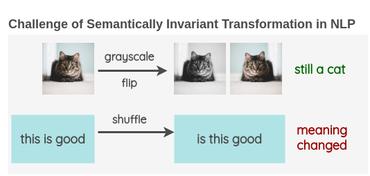Distributional Data Augmentation Methods for Low Resource Language
Text augmentation is a technique for constructing synthetic data from an under-resourced corpus to improve predictive performance. Synthetic data generation is common in numerous domains. However, recently text augmentation has emerged in natural language processing (NLP) to improve downstream tasks. One of the current state-of-the-art text augmentation techniques is easy data augmentation (EDA), which augments the training data by injecting and replacing synonyms and randomly permuting sentences. One major obstacle with EDA is the need for versatile and complete synonym dictionaries, which cannot be easily found in low-resource languages. To improve the utility of EDA, we propose two extensions, easy distributional data augmentation (EDDA) and type specific similar word replacement (TSSR), which uses semantic word context information and part-of-speech tags for word replacement and augmentation. In an extensive empirical evaluation, we show the utility of the proposed methods, measured by F1 score, on two representative datasets in Swedish as an example of a low-resource language. With the proposed methods, we show that augmented data improve classification performances in low-resource settings.
PDF Abstract


